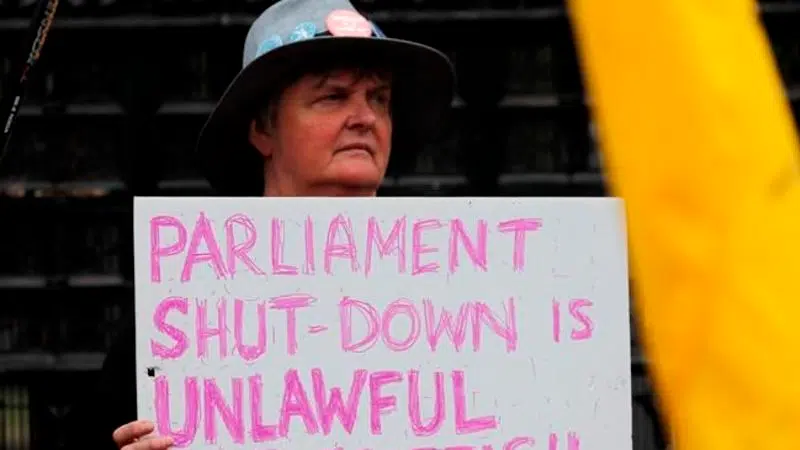
UK court: Boris Johnson’s suspension of Parliament unlawful
LONDON — A Scottish court dealt another blow to Prime Minister Boris Johnson’s Brexit plans Wednesday, ruling that his decision to suspend Parliament less than two months before the U.K. is due to leave the European Union was an unlawful attempt to avoid democratic scrutiny.
The government immediately said it would appeal, as the political opposition demanded Johnson reverse the suspension and recall lawmakers to Parliament.
With Brexit due in 50 days, the court ruling deepened Britain’s political deadlock. Johnson insists the country must leave the EU on Oct. 31, with or without a divorce deal to smooth the way. But many lawmakers fear a no-deal Brexit would be economically devastating, and are determined to stop him.
Their case got a boost late Wednesday as the government gave in to a demand from lawmakers and published a document showing that a hard exit could lead to logjams for freight, shortages of some foods and medicines, major travel disruptions and possible rioting.


